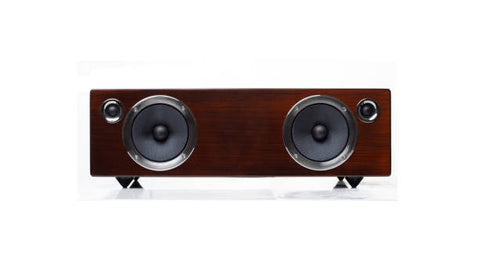Speaker Cable vs. Regular Electrical Cable: Is There Any Difference?

With hundreds of different speaker cable options on the market, customers are promised an unparalleled sound quality. However, does it always make sense to go for speaker cables in audio systems? Can a regular electric cable do just as good of a job? In most cases, it can. This blog highlights how a speaker cable is not that fundamentally different from a regular electrical cable.
How Does a Speaker Cable Compare Exactly To Regular Electric Wire?
A speaker cable is a low-voltage electrical cable with two or more stranded conductors often made of copper, silver-plated copper, or copper-clad aluminum. Common sizes of speaker wire are 14 AWG, 16 AWG, and 18 AWG. A speaker cable is a flexible cable with stranded conductors. This is, by far, the most defining characteristic of this cable.
Aside from that, speaker cables are known to strip quickly. They have polarity indicators on both sides of the conductor. The jacket of the speaker cable is often transparent as opposed to color-coded.
Aside from those characteristics, a speaker cable is more or less similar to a regular electrical wire. Every piece of information that insists on the fundamental differences between speaker cables and other types of electrical wires is not supported by facts. In the next chapters of this blog, let's dive into the electrical cables that can be used in speaker systems more.
Reasons To Use Lamp Cord As A Speaker Wire
Low-voltage copper cables, lamp cords, and zip cords are perfectly fine options for speaker cables. In fact, lamp cords and zip cords were used in loudspeakers before the speaker cables were introduced in the first place. This is a practice known by audio fans all over the world.
The benefits of using speaker cables as a lamp cords are the following:
- Lamp cords are very cheap, between 0.50 to 1.5 dollars per foot. This makes them more affordable than most of the electrical cables on the market and significantly cheaper than speaker wires sold at premium prices.
- Lamp cords have a copper conductor, while many speaker cables have conductors that are made of copper-clad aluminum. Since copper is a better conductor of electricity, lamp cords can have better quality than some speaker cables.
If you choose to use lamp cords as a speaker wire, note that they come in length up to 25 feet. This means that this type of cable is not available for longer runs. However, it should be noted that a length of 25 feet is perfectly fine for most home runs.
Can I Use any Kind Of Regular Electrical Wire In Speakers?
Since the difference between electrical cables and speaker cables is nominal, it is perfectly acceptable to use any copper electrical wire in speakers as long as it is the right gauge. Aside from the lamp cords, a common budget-friendly option for the speaker cables, options include THHN, NM-B Romex for in-wall runs, and even less obvious choices, such as extension cords and thermostat wire. Here is our detailed guide on coaxial cables and how they are used in audio speaker systems.
One thing you have to do when using regular wire in speakers is to adhere to the standards on the length and gauge of these cables. You can find more information on these types of standards in this blog. It also goes without saying that you should not use cables not rated for plenum for in-wall installations.
Can You Use A Speaker Wire For 12V Power Applications?
Since most copper electrical cables can be used for speaker wires, a logical question is whether this interchangeability goes both ways. The short answer to this question is yes, speaker wire is plausible for 12V power applications.
Low-power applications for which you can use speaker cables include lamps, ceiling fixtures, and even thermostats. One thing that must be considered is that the speaker wire has to be the correct gauge and length for the particular application. However, it is worth mentioning that using speaker wire for most other applications is impractical because it is much more expensive than different types of copper cables. It makes sense to use spare speaker cables that you already have for various applications.
All in all, speaker and copper electrical power cables are variations of the same concept. Investing in speaker cables is not always worth your money. Regardless of what you choose to go for, you can find pretty much any type of electrical cable at Nassau National Cable.

















